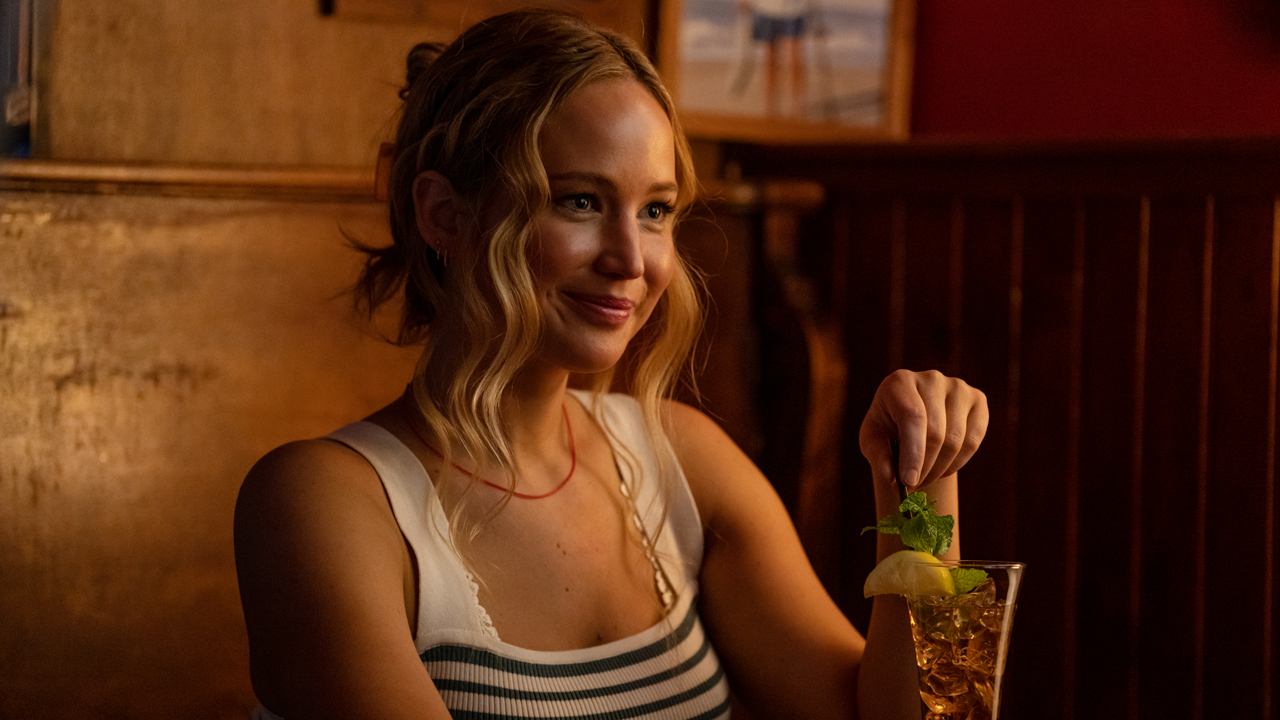Even a school kid studying the Civil War for the first time knows slavery is evil. And yet with a hundred years between then and now, this atrocious stain on U.S. history feels somewhat sanitized, dubbed as a kind of ancient evil from a time far away when people didn't know any better. What Steve McQueen's 12 Years A Slave does is give a human face--actually many--to this time and place, forcing us all to freshly confront slavery’s horrors and recognize how these people of the past really aren't all that different from us. Evil is a choice man can make every day, even today, in one form or another.
Based on a disturbing true story, 12 Years A Slave unfolds the hair-raising events that befell Solomon Northup, a free man living with a wife and family in Saratoga, New York in 1841. This was a perilous time for African Americans--even in the North--because runaway slaves were required by law to be returned down South to their masters. Some especially vile entrepreneurs took advantage of this edict to kidnap free men and sell them into slavery by claiming them to be runaways. This was the sickening fate that befell Solomon, who was transported down South, sold, and subjected to a barrage of abuse and dehumanizing treatment over the titular 12 years.
The poignant drama is stuffed from start to finish with notable stars and impeccable performances. Chiwetel Ejiofor shoulders this heavy narrative as Solomon, at turns brave, petrified, furious and cautiously hopeful. This range—deftly executed by Ejiofor—is the very definition of an Academy Award-worthy performance. Similarly powerful performances come from supporting players like Paul Giamatti as a despicable slave seller, Benedict Cumberbatch as a "kindly" slave owner, Adepero Oduye as the previously mentioned grieving mother Eliza, Sarah Paulson as a cruel mistress of the house, Alfre Woodard as an unlikely Southern belle, Brad Pitt as a liberal carpenter, Garret Dillahunt as a disgraced overseer, and Paul Dano as a vile one. Many will marvel at the shameless racism and self-righteous fury Michael Fassbender brings to his role of a slave owner with a reputation for breaking backs and spirits. And he is deserving of all praise given, creating a villain at once realistic and among the most terrible cinema has ever seen. But for me, the most compelling performance from this astonishing ensemble comes from Lupita Nyong'o, who unbelievably makes her film debut here.
12 Years A Slave is an ambitious endeavor that not only shows Solomon's tale but also gives glimpses into the lives of his contemporaries. To me, the most riveting and terrible of these stories is that of Nyong'o 's Patsey. She's a great worker, outpicking all the men in the field by hundreds of pounds of cotton every single day. Unfortunately her master (Fassbender) chooses to show his favor with nightly rape, which spurs his jealous wife (Paulson) to repeated assaults to poor, pretty Patsey. Playing a character this racked with desperation and despair is an intimidating task but Nyong'o handles it with a delicate touch, portraying Patsey as a tender bird, strong but caged, and growing weaker for it. While Solomon dreams that his family will find and fee him, Patsey was born into slavery and has no such hopes.
She has "no comfort in this life" and her attempt to grab some results in the movie's most electrifying scene, a long take where Patsey is viciously whipped. McQueen's preference for long takes felt a disadvantage in Shame, where an awkward angle in its claustrophobic sets would be sat on for minutes on end. But here his predilection has found its place. The camera circles Patsey and her attackers fluidly, revealing the 360-degree world of the antebellum South that McQueen has recreated, as well as relishing in the snarling ferocity of his performers. Combine this with the sound design that lands the gravity if this violence--the snap of the lash, the tearing of flesh, and Patsey’s anguished screams--even when the camera isn't on it. All this creates a dramatic weight and tension so thick you'll want to look away, but the movie demands you stay focused, with Solomon. It builds to a moment where Solomon lost in thought looks about his world, then breaks the fourth wall, looking right into the camera and out to us. I looked back, and felt shamed and deeply regretful for the wretched past we all share.
McQueen presents us with two forms of evil. The most obvious is the brand laid out by Fassbender's raping slave owner. He knowingly inflicts harm, and feels it is his right to do so, seeing himself as superior to these black men and women. Then there's a subtler but no less sinister evil presented by Cumberbatch's slave owner. He feeds his slaves well, doesn't rape or beat them. However, as Eliza points out to Solomon, he is nonetheless a slave owner. He comforts himself on the knowledge he is not as bad as Fassbender's character, but looks the other way when his overseer is cruel and violent, and ignores Solomon's pleas to set him free. Others in the film make similar choices, turning a blind eye to evil rather than opposing it. McQueen suggests this too is evil. How this message relates to the modern day is for each of us to decide for ourselves. But for me, it brought into sharp focus that while slavery is long behind us, evil is not sanitized, or far away. It just doesn't take the form of literal slavery anymore. It’s far more insidious.
Your Daily Blend of Entertainment News
Staff writer at CinemaBlend.


